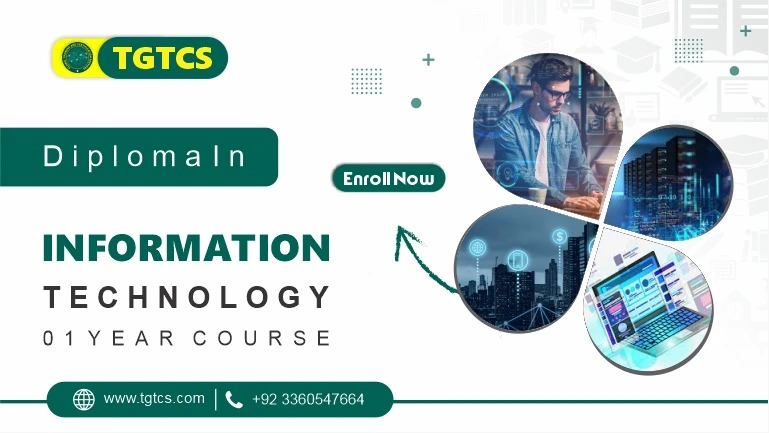ICTQual Level 4 Diploma in Electrical Engineering 120 Credits – One Year
The ICTQual Level 4 Diploma in Electrical Engineering offers an exciting opportunity to gain the skills, knowledge, and hands-on experience needed to thrive in various electrical engineering roles. This one-year, 120-credit qualification is designed to provide you with a solid foundation for both immediate employment and further educational advancements.
The ICTQual Level 4 Diploma in Electrical Engineering is a comprehensive course that covers a wide range of topics essential for aspiring electrical engineers. This qualification equips students with a deep understanding of electrical systems, circuits, control systems, and electronics, combined with practical skills in the design, installation, and maintenance of electrical infrastructure.
Over the course of one year, students will complete 120 credits, engaging in both theoretical learning and hands-on projects that provide real-world experience. The course structure ensures that graduates are well-prepared to enter the workforce or continue their studies in higher-level qualifications.
The ICTQual Level 4 Diploma in Electrical Engineering offers a robust educational pathway for those looking to enter or advance in the electrical engineering field. With a combination of practical skills and theoretical knowledge, this course prepares you for a successful career in the growing and diverse electrical engineering industry. Whether you’re just starting your career or looking to enhance your existing qualifications, the ICTQual Level 4 Diploma in Electrical Engineering provides the skills and credentials you need to succeed.
The Global Training and Certification Services (TGTCS) is Directly Approved Training Centre of ICTQual
The ICTQual Level 4 Diploma in Electrical Engineering is a comprehensive, one-year program designed to provide students with a strong foundation in electrical engineering. Awarded 120 credits, this course covers essential topics including electrical circuits, power generation, control systems, electronics, electrical installation, and safety standards.
Through a blend of theoretical learning and practical hands-on experience, students will gain the skills needed to work in various sectors such as power generation, telecommunications, and manufacturing. Graduates will be well-prepared for entry-level positions in electrical engineering and have the opportunity to pursue further education or professional certifications to advance their careers.
This accredited diploma offers a clear pathway for those looking to enter the electrical engineering field, enhance their technical expertise, or specialize in specific areas such as control systems or electronics.
Mandatory Units
The Units of Level 4 Diploma in Electrical Engineering 120 Credits – One Year are as ;
- Electrical Principles
- Electrical Circuits and Systems
- Digital Electronics and Microprocessors
- Electrical Machines and Transformers
- Instrumentation and Control Systems
- Power Generation and Distribution
- Renewable Energy Systems
- Electrical Safety and Legislation
- Advanced Electrical Circuit Design
- Control and Automation Systems
- Project Management for Electrical Engineering
- Electrical Engineering Project (Capstone)
Upon successful completion of each study unit, students will demonstrate the following learning outcomes:
- Electrical Principles
- Understand and apply Ohm’s Law to solve electrical circuit problems.
- Analyze both simple and complex electrical circuits, calculating voltage, current, resistance, and power.
- Utilize electrical measurement tools to test and validate circuit behavior.
- Apply electrical principles to solve real-world engineering challenges.
- Electrical Circuits and Systems
- Analyze DC and AC circuits using fundamental electrical laws.
- Apply Kirchhoff’s Voltage and Current Laws to solve circuit problems.
- Design, test, and troubleshoot electrical circuits and systems.
- Understand and explain the behavior of electrical components in both simple and complex circuits.
- Digital Electronics and Microprocessors
- Grasp the basics of digital logic and number systems.
- Design and implement digital circuits using logic gates, flip-flops, and counters.
- Work with microprocessor-based systems, understanding their architecture and applications.
- Interface digital electronics with external systems and sensors for practical use.
- Electrical Machines and Transformers
- Demonstrate an understanding of the operation and principles of electrical motors, generators, and transformers.
- Evaluate and select electrical machines for specific applications based on operational parameters.
- Understand power loss and efficiency concepts in electrical machines.
- Perform maintenance and fault diagnosis on electrical machines and transformers.
- Instrumentation and Control Systems
- Understand key components of electrical instrumentation and control systems.
- Design and implement control systems using sensors, actuators, and controllers.
- Apply feedback mechanisms and PID control strategies in automated systems.
- Integrate instrumentation and control systems into larger engineering processes.
- Power Generation and Distribution
- Analyze different power generation methods, including fossil fuels, nuclear, and renewable energy sources.
- Understand the principles of electrical power transmission and distribution.
- Evaluate the efficiency and environmental impact of various power generation technologies.
- Troubleshoot issues in power generation and electrical grid distribution systems.
- Renewable Energy Systems
- Understand the principles of renewable energy sources like solar, wind, and hydroelectric power.
- Design and evaluate systems for integrating renewable energy into electrical grids.
- Assess energy storage solutions and their integration with renewable systems.
- Explore strategies to increase the sustainability and efficiency of energy systems.
- Electrical Safety and Legislation
- Identify electrical hazards and apply appropriate safety measures.
- Demonstrate knowledge of health, safety, and environmental legislation relevant to electrical work.
- Implement safety standards and regulations (e.g., IEC, NEC) in electrical projects.
- Apply safe working practices during the installation, maintenance, and operation of electrical systems.
- Advanced Electrical Circuit Design
- Design and analyze advanced electrical circuits, incorporating both analog and digital components.
- Apply knowledge of semiconductor devices and operational amplifiers in circuit design.
- Develop power supply systems and understand their role in electrical circuit design.
- Troubleshoot complex circuits and optimize designs for performance and reliability.
- Control and Automation Systems
- Understand the principles and components of automation systems, including PLCs, SCADA, and robotics.
- Design and implement control systems for industrial automation and process control.
- Program PLCs and integrate automation systems for practical applications.
- Troubleshoot, maintain, and optimize control systems for efficiency.
- Project Management for Electrical Engineering
- Understand project management principles and apply them to electrical engineering projects.
- Develop project plans, including budgeting, scheduling, and resource allocation.
- Manage project risks and make adjustments to ensure successful delivery.
- Effectively communicate project progress and results to stakeholders and team members.
- Electrical Engineering Project (Capstone)
- Apply theoretical and practical knowledge to complete an electrical engineering project.
- Plan, design, and implement engineering solutions considering technical, economic, and environmental factors.
- Conduct testing, analysis, and optimization to meet project requirements.
- Communicate project results effectively through reports, presentations, and technical documentation.
- Collaborate in teams, managing project timelines, resources, and objectives.
The ICTQual Level 4 Diploma in Electrical Engineering offers numerous benefits to students, helping them build a strong foundation in electrical engineering and advance their careers in this dynamic industry. Here are the key advantages of completing this course:
1. Comprehensive Skill Development
- The course provides in-depth knowledge and practical skills in electrical principles, circuits, systems, control systems, power generation, and renewable energy.
- Students gain hands-on experience in designing, testing, and troubleshooting electrical systems, which are essential for real-world applications.
2. Industry-Relevant Curriculum
- The program is aligned with current industry practices, ensuring students acquire the skills and knowledge that employers seek in electrical engineering professionals.
- Topics such as power generation, renewable energy systems, electrical safety, and control automation prepare students for the latest trends in the field.
3. Pathway to Career Opportunities
- Graduates are equipped to enter a wide range of careers in electrical engineering, including roles like electrical engineer, control systems engineer, electrical technician, and power generation specialist.
- The qualification provides a competitive edge in the job market by demonstrating a robust understanding of electrical systems and engineering principles.
4. Hands-On Learning Experience
- The course emphasizes practical learning through project work, allowing students to develop problem-solving skills and apply theoretical knowledge in real-world engineering contexts.
- Practical modules like circuit design, control systems, and instrumentation help students gain confidence in tackling complex engineering challenges.
5. Accredited and Recognized Qualification
- The ICTQual Level 4 Diploma is an accredited qualification, widely recognized by employers and educational institutions within the electrical engineering industry.
- This gives graduates a valuable credential, enhancing their employability and future career prospects.
6. Opportunities for Further Study
- Upon completing the Level 4 Diploma, students can advance to higher-level qualifications such as the ICTQual Level 5 Diploma or pursue a degree in electrical engineering or related fields.
- Graduates can also earn professional certifications, which can open doors to specialized roles in areas like control systems, power distribution, or renewable energy.
7. Enhanced Job Security and Career Growth
- The growing demand for skilled electrical engineers, especially in sectors like renewable energy, automation, and infrastructure, means that graduates of this diploma will have significant job opportunities.
- The course prepares students for leadership roles in engineering projects, including project management and team leadership positions.
8. Global Career Opportunities
- The skills acquired in this course are applicable worldwide, offering graduates the flexibility to pursue careers in global markets.
- The qualification is recognized internationally, enabling graduates to seek employment in diverse regions and industries.
9. Focus on Sustainability and Renewable Energy
- As the demand for clean and renewable energy solutions increases, this course prepares students to work with solar, wind, and hydroelectric systems.
- Graduates can contribute to sustainable development by designing and implementing energy-efficient solutions in both public and private sectors.
10. Developed Critical Thinking and Problem-Solving Skills
- Throughout the course, students will develop critical thinking and analytical skills, which are essential for solving complex engineering problems.
- The emphasis on troubleshooting, project management, and innovation helps students build the problem-solving abilities necessary for success in electrical engineering.
11. Project Management and Teamwork Skills
- The course includes modules focused on project management, where students learn to plan, manage, and deliver electrical engineering projects.
- Graduates will gain teamwork and leadership experience, which are invaluable when working on collaborative engineering projects.
12. Improved Safety Awareness
- Electrical safety is a critical aspect of the course, ensuring that students understand and apply proper safety standards and legislation in their work.
- Graduates are prepared to identify and mitigate electrical hazards, ensuring safer working environments and contributing to the overall safety of engineering projects.
The ICTQual Level 4 Diploma in Electrical Engineering is designed for individuals who are passionate about pursuing a career in electrical engineering or enhancing their existing skills in the field. Below are the characteristics and qualities of the ideal learner for this course:
1. Aspiring Engineers
- The course is ideal for individuals looking to start their journey in electrical engineering. If you have a strong interest in electrical systems, circuits, and automation, this diploma will provide the foundational knowledge needed to build a career in the industry.
2. Current Technicians and Professionals
- If you are already working in a technical role such as an electrical technician, maintenance worker, or engineering assistant and wish to upgrade your skills or gain formal qualifications, this diploma will help you advance your career and take on more complex engineering tasks.
3. STEM Enthusiasts
- Learners with a background or interest in science, technology, engineering, or mathematics (STEM) subjects will find this course a perfect fit. The program builds on problem-solving, analytical thinking, and technical knowledge, making it ideal for those with a strong aptitude for these disciplines.
4. Hands-On Learners
- The course emphasizes practical, hands-on learning, making it suitable for those who prefer an interactive and applied approach to education. If you enjoy working with tools, circuits, and electrical equipment, the hands-on nature of this course will align well with your learning style.
5. Problem-Solvers and Critical Thinkers
- If you are someone who enjoys tackling complex problems, analyzing systems, and finding efficient solutions, the course will help you hone these skills. Electrical engineering often requires troubleshooting and innovation, and this diploma offers numerous opportunities to develop those abilities.
6. Individuals Interested in Renewable Energy and Sustainability
- As the course covers renewable energy systems and sustainability in electrical engineering, it is an excellent choice for those who are passionate about environmental sustainability and want to contribute to the development of clean energy solutions.
7. Career Switchers
- Individuals looking to transition into electrical engineering from a different field can benefit from this course. If you have a strong interest in engineering and are eager to shift your career to a technical, high-demand industry, this diploma provides the essential skills and qualifications to make that transition.
8. Detail-Oriented and Safety-Conscious Learners
- The program places significant emphasis on safety, electrical legislation, and regulations. Learners who are detail-oriented, safety-conscious, and committed to maintaining high standards in their work will find this course rewarding.
9. Students with Basic Knowledge in Math and Physics
- While prior experience in electrical engineering isn’t necessary, having a basic understanding of math (especially algebra and trigonometry) and physics will be beneficial. If you have studied these subjects at school or college, you’ll be well-prepared to tackle the course material.
10. Self-Motivated and Committed Learners
- The course requires commitment, dedication, and a self-driven attitude. It is suitable for learners who are motivated to gain specialized knowledge, achieve a recognized qualification, and progress in their careers.
11. Future Managers and Leaders in Electrical Engineering
- The course includes modules on project management and leadership, making it ideal for individuals who aspire to take on managerial or supervisory roles in the future. If you are looking to combine your technical expertise with leadership skills, this diploma sets a strong foundation for career advancement.
Progression Routes
The ICTQual Level 4 Diploma in Electrical Engineering (120 Credits) – One Year provides students with a strong foundation to advance in the electrical engineering field. Upon completion of the diploma, students have a variety of progression opportunities available based on their career goals and interests. These opportunities can lead to further academic qualifications, advanced career roles, or specialization in specific areas of electrical engineering.
1. Further Education and Qualifications
- Level 5 Diplomas: After completing the Level 4 Diploma, students can progress to a Level 5 Diploma in Electrical Engineering or a related field. These qualifications delve into advanced topics such as electrical design, energy systems, and high-level engineering principles, paving the way for roles in management or advanced technical positions.
- Higher National Diploma (HND): Students can choose to pursue an HND in Electrical Engineering, which builds on the foundational knowledge from the Level 4 Diploma and provides in-depth exploration of the electrical engineering sector. This qualification offers increased job prospects and access to more advanced technical roles.
2. Advanced Career Opportunities
The Level 4 Diploma equips students with the skills necessary to pursue a wide range of roles in electrical engineering across various sectors, such as construction, manufacturing, energy, and automation. Potential career paths include:
- Electrical Technician: Install, maintain, and repair electrical systems and machinery in various industries.
- Control Systems Engineer: Design and manage automation systems used in manufacturing, robotics, and industrial applications.
- Electrical Design Engineer: Specialize in designing electrical systems and circuits for diverse applications, from residential to industrial installations.
- Renewable Energy Engineer: Work on projects involving solar, wind, and other renewable energy sources, contributing to the global transition to sustainable energy.
- Electrical Maintenance Engineer: Ensure the continuous operation of electrical systems in factories, power plants, and other industrial settings by conducting maintenance and troubleshooting.
3. Specialized Areas of Study
Graduates may choose to specialize in specific areas of electrical engineering to deepen their expertise and enhance their career opportunities. Specializations include:
- Power Systems Engineering: Focus on the generation, transmission, and distribution of electrical power, working with electrical grids and power plants.
- Automation and Control: Specialize in designing and implementing automation systems for industrial applications, including PLC programming and robotics.
- Renewable Energy Engineering: Develop expertise in the design and integration of renewable energy systems like solar, wind, and hydropower.
- Electrical Machine Design: Specialize in the design, testing, and optimization of electrical motors, transformers, and other machines used in industrial applications.
These specializations offer higher earning potential and leadership opportunities, as the demand for skilled experts in these areas continues to grow.
4. Professional Certifications and Accreditation
After completing the Level 4 Diploma, students can pursue professional certifications that further enhance their employability and professional standing, including:
- Chartered Engineer (CEng): Aspiring Chartered Engineers can work towards certification through institutions like the Institution of Engineering and Technology (IET) or the Institution of Mechanical Engineers (IMechE). This process involves further study, work experience, and passing professional exams.
- Certified Control Systems Technician (CCST): Those interested in automation and control systems can earn certification from organizations like the International Society of Automation (ISA) to boost career progression in control systems engineering.
- Project Management Certification: Graduates can pursue certifications in project management, such as PRINCE2 or Project Management Professional (PMP), enabling them to take on management roles in overseeing engineering projects.
5. Apprenticeships and Work-Based Learning
For those who prefer hands-on experience, apprenticeships and work-based learning programs provide valuable practical experience. Many engineering firms offer apprenticeship schemes that allow students to earn while learning, providing real-world exposure to electrical engineering projects while earning additional qualifications.
6. Entrepreneurship and Self-Employment
With a Level 4 qualification, graduates can also explore entrepreneurial opportunities, such as:
- Starting an Electrical Engineering Business: Graduates can establish their own businesses in areas like electrical installation, maintenance, renewable energy systems, or automation services.
- Consulting: Those with strong problem-solving and innovation skills may choose to offer consultancy services in specialized fields, including power systems, control automation, or energy management.
The ICTQual Level 4 Diploma in Electrical Engineering provides a versatile and solid foundation for students to either enter the workforce or continue their education, unlocking a range of exciting career and entrepreneurial opportunities.
Course Overview
Course Level
Level 4
Course Units
12 Mandatory Units
Duration
one year






